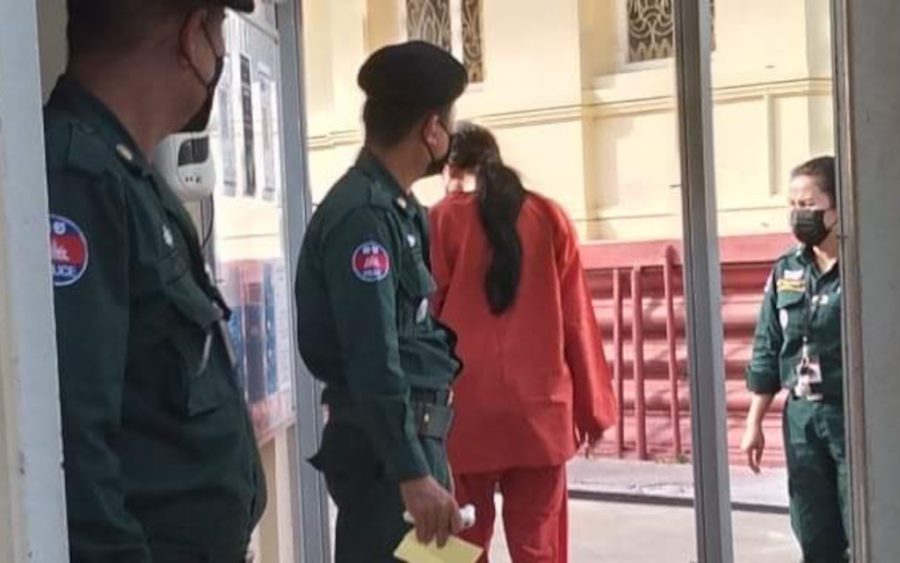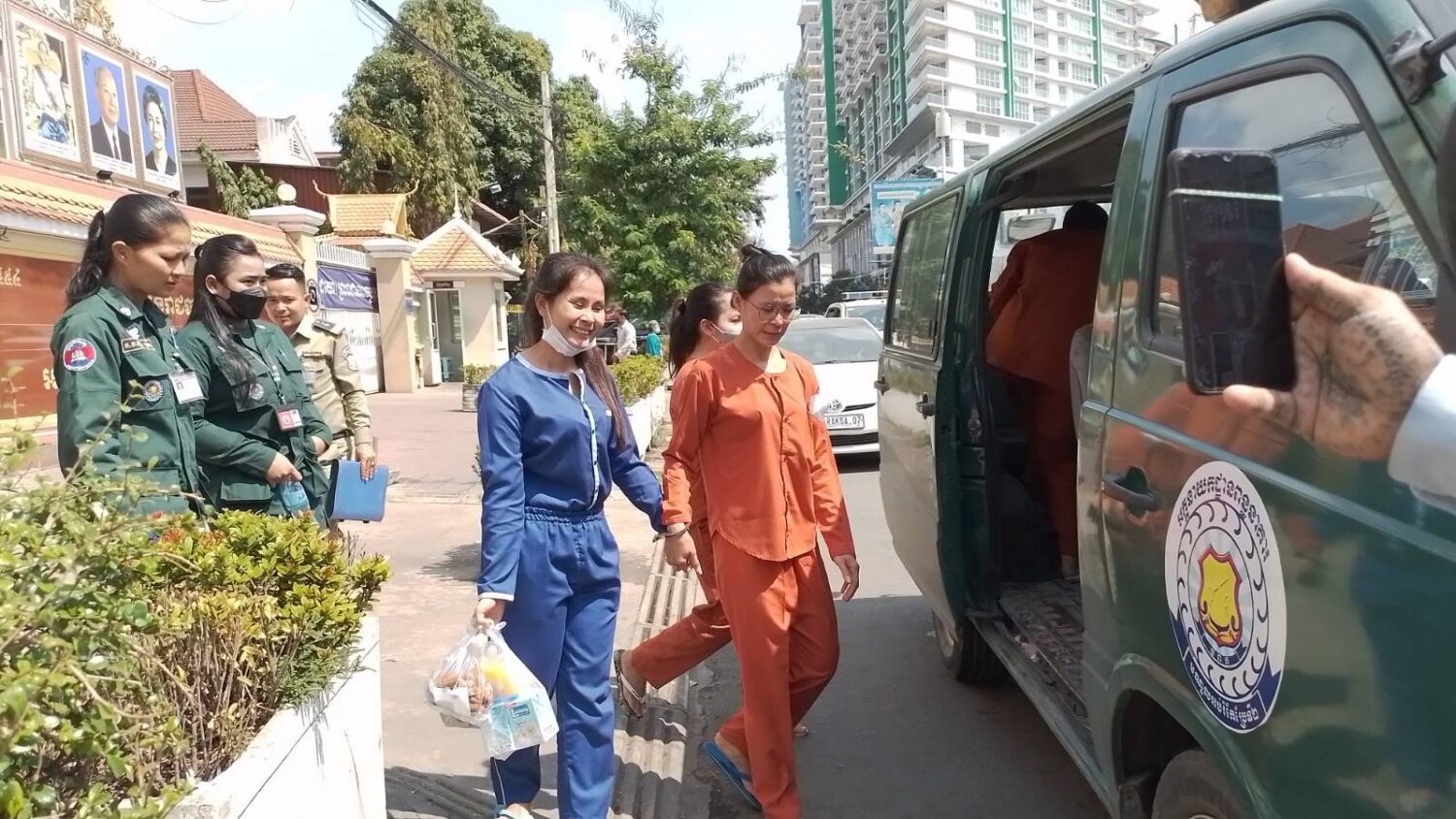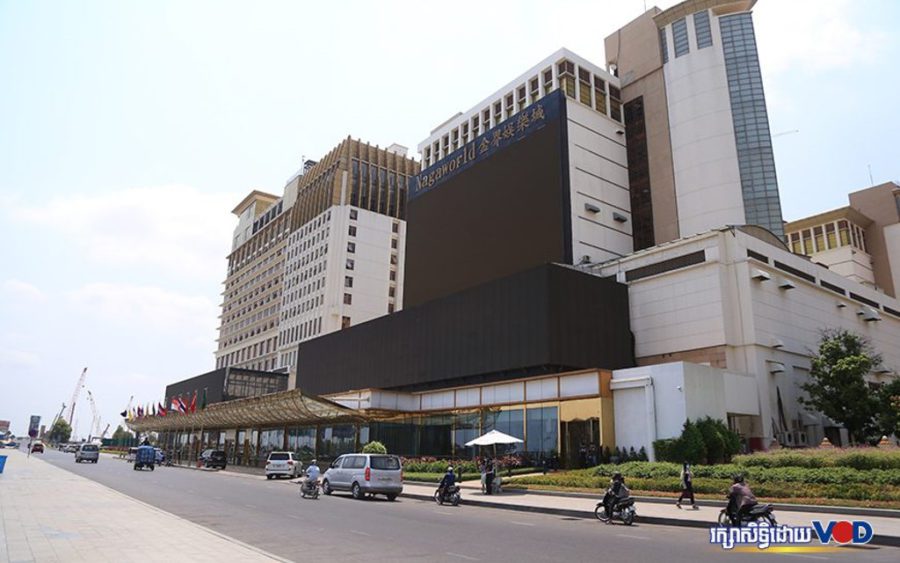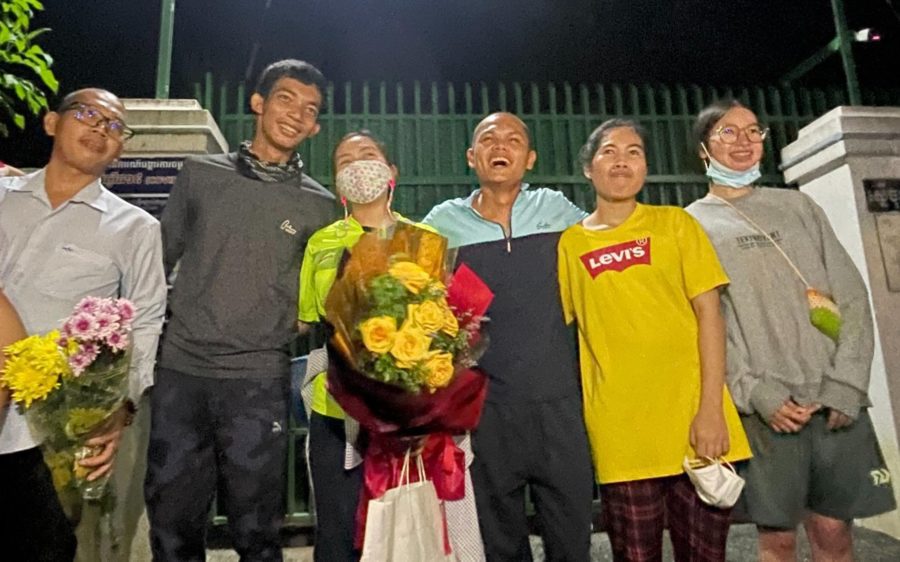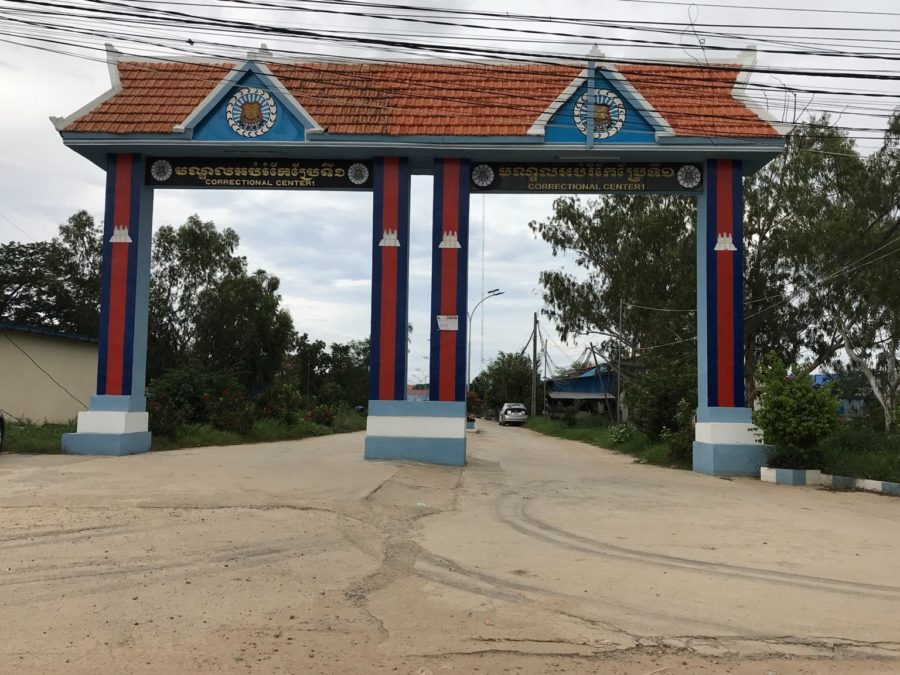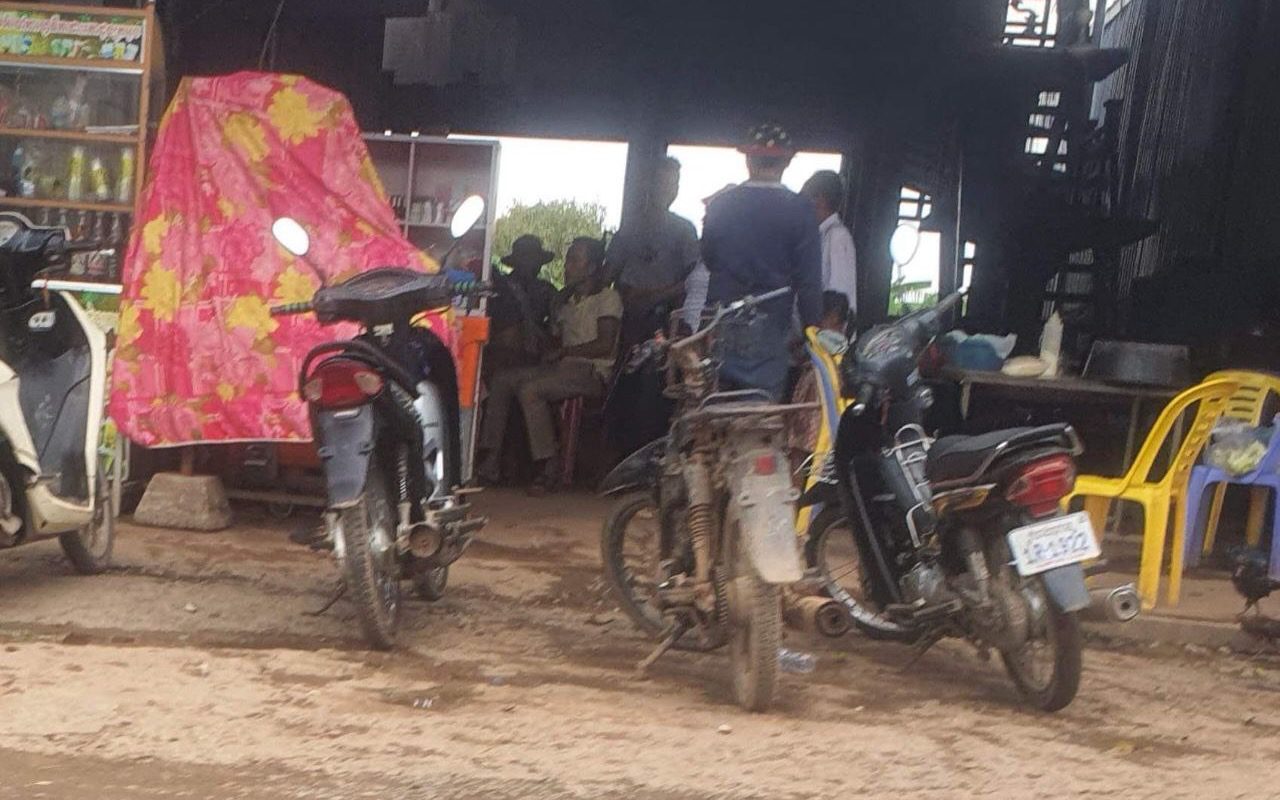A woman convicted of masterminding a 2016 grenade attack in central Phnom Penh targeting her cheating boyfriend made an appeal at the Supreme Court that she had only sought for him to be threatened.
The Supreme Court on Tuesday heard appeals from the defendant as part of two linked cases over a tumultuous relationship that have seen convictions against the woman and seven accomplices.
The attack took place in early September 2016 when two people on a motorcycle were seen in leaked CCTV footage throwing a grenade on Street 163 in Boeng Keng Kang III, after which a white SUV drove over the exploding ordnance. The blast injured four bystanders and damaged three vehicles.
After initially being pegged as a larger attack by a National Police spokesperson, Sok Kimly and four others were arrested for attempting to murder her boyfriend Ear Lyhour. Three Vietnamese nationals were also arrested for attempting to kill Lyhour in a separate attack — again at the alleged behest of Kimly, though an attack was not carried out.
Kimly, Bun Pheakdey and Sak Mab were convicted for premeditated murder and sentenced to life in prison and two others, Nou Somban and Pheakdey’s girlfriend Bou Sopheap, were convicted as accomplices to the crime and imprisoned for 30 years.
The prosecution’s case alleged that Kimly had hired Pheakdey and Sopheap to kill her boyfriend, and they then hired Mab to assist. Pheakdey and Mab were on the motorcycle when Mab threw the grenade.
An Appeal Court panel upheld the verdict but reduced the three life sentences to 30 years in prison each.
However, defense lawyer Yon Bunna asked for the case to be sent back to the Appeal Court because it had ignored testimony that could exonerate Kimly. The accused wanted Pheakdey to only threaten her boyfriend but had not instructed anyone to kill him, Bunna said, adding that Pheakdey went above and beyond Kimly’s brief.
“Her intention was to use violence, because she loved Lyhour so much and this led to jealousy and did not want him to have a mistress outside,” Bunna said, adding that Kimly wanted at most Lyhour’s limbs broken and would have used better options than a grenade attack to kill him if she wanted to do so.
When Kimly testified, she said: “I did not want to kill him. I felt jealous because I loved him so much and I asked Pheakdey to threaten him.”
The case involved five plaintiffs, Lyhour and the four people injured, who had later retracted their complaints.
Seng Chea, one of the plaintiffs in court, told the judges he had no intention to pursue the complaint nor was he demanding any damages, and asked the court to not summon him again.
In the second case involving the Vietnamese nationals, Kimly was convicted as an insitigator of attempted murder and the three others were charged as accomplices. All four were given 10 years each, which was upheld by the Appeal Court.
Bunna, Kimly’s defense lawyer, said that while she had again plotted to threaten her boyfriend she had not followed through on her intentions and that she could not be held responsible for a crime that was not committed.
“When the plan has not been implemented, can there be responsibility or not? Please consider getting my client off the charge.”
Deputy general prosecutor Ouk Kimsith said the alleged killer had not gone ahead with the murder and had returned the gun to Kimly, so it was up to the judges if they wanted to drop the charge of instigator.
According to the Cambodia Criminal Code, an instigator can be punished only if the felony or misdemeanour was committed or attempted.
The court is set to deliver a decision on both cases on October 19.


